how to eat a superfood diet without the super expense
This website may earn commissions from purchases made through links in this post.
“Superfood: a nutrient-rich food considered to be especially beneficial for health and wellbeing.”
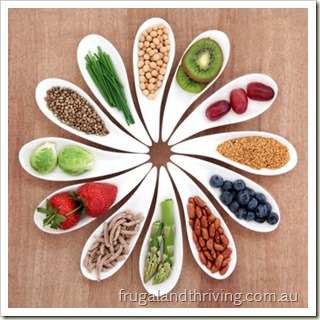
Do any of these foods spring to mind:
Macca powder, chia seeds, salt flavoured with the sweat of Sherpas, kale, goji berries, raw cacao, pond scum (otherwise known as spirulina), chia seeds, acai berries, bee pollen, hemp protein, chia seeds, chlorophyll, sea weed, any other David Wolfe endorsed product?
I certainly had the impression that these were essential ingredients for the elixir of life, eternal youth, immunity to all disease and x-ray vision.
And so because we’re living on a tight budget, I figured I would not be looking forward to x-ray vision any time soon.
Probably a good thing really, don’t you think?
It turns out there’s more to the story of superfoods than exotic fruits from endangered rainforests, jettisoned across the globe.
Other superfoods include: berries, beans, oats, broccoli, avocado, beans, walnuts…
…apples, pears, potatoes, onions, eggs, asparagus, coconut, turkey, oranges, lemons, capsicum, pumpkin, yoghurt…
…spinach, cabbage, carrots, plums, quinoa, sesame seeds, cauliflower, olive oil, tea…
…brown rice, mushrooms, spices, garlic, herbs, liver, tomatoes, salmon…
…but you probably already know this.
A superfood diet is not about expensive healthfood store finds, it’s just a plant-based (eat mostly plants) wholefood diet.
And while I can’t guarantee x-ray vision, eating a balanced diet that emphasises wholefoods and fruit and vegetables, foods that you can get from your local supermarket or farmer’s market, foods that are Australian grown, will contribute to your health, wellbeing and longevity, without breaking the budget.
“Superfood: a marketing term used to describe foods with supposed health benefits” [source].
A ‘superfood’ diet begins in the greengrocers
Do you shop at the health food store?
When I enter a health food store, I’m like a kid in a candy store. There’s nothing like the promise of vitality, inner peace and healthy chocolate.
And then I look at the prices.
And then I back slowly towards the door muttering “noooo touching”.
“Would you like to taste our yoghurt-dipped dried mango at $52 a kilo?”
“I’m sure it’s delicious…but noooo thank you.”
A superfood diet, at least not a budget one, is not found at the health food store.
It starts at the greengrocers, or the greengrocer section of your supermarket, or the farmer’s market, or your own vegie patch.
Fresh fruit and vegetables (frozen counts too), nuts and seeds, herbs and spices, eggs, some dairy and meat if you’re so inclined. Particularly organ meat. And, as an extra frugal bonus, lentils, beans, brown rice and oats!
A superfood diet skips the processed foods, breakfast cereal, sweets, junk foods, fake foods, and packaged foods – at least most of the time (does the pond scum make up for last night’s Mars Bar? I live in hope.)
This plain and simple wholefood diet is also synonymous with detox diet, anti-inflammatory diet, anti-aging diet, anti-cancer diet, healthy diet and weight loss diet.
Nanna had it right about an apple a day.
We all already know what healthy eating looks like. Maybe it’s the promise of a magic quick-fix that has us searching for, and swallowing, something more. The great news is, great health is as close as your own fridge and as affordable as the next grocery shop.

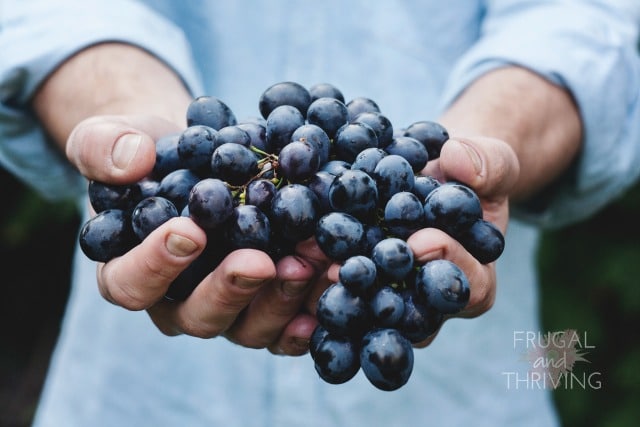
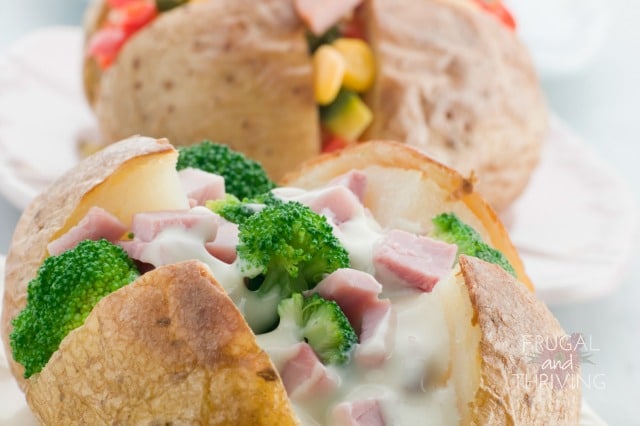
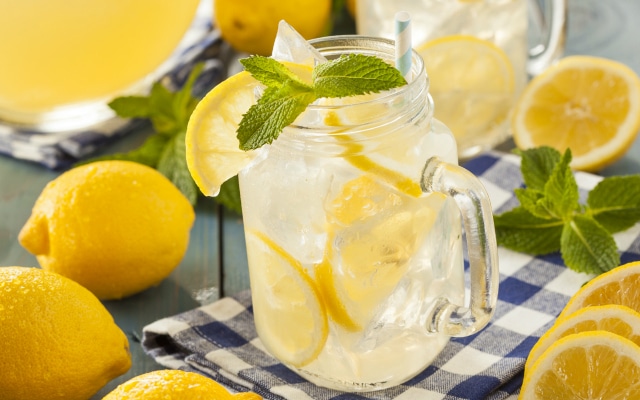
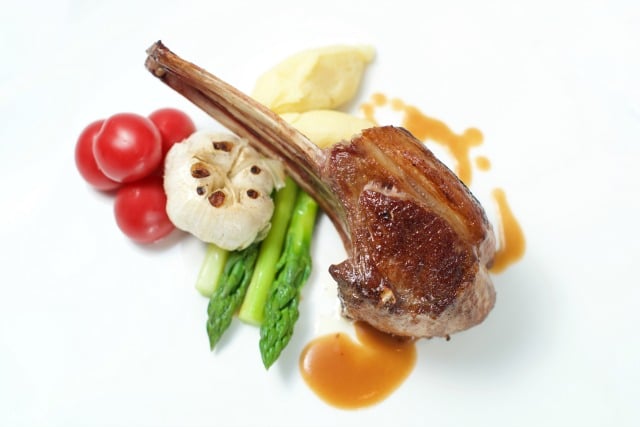
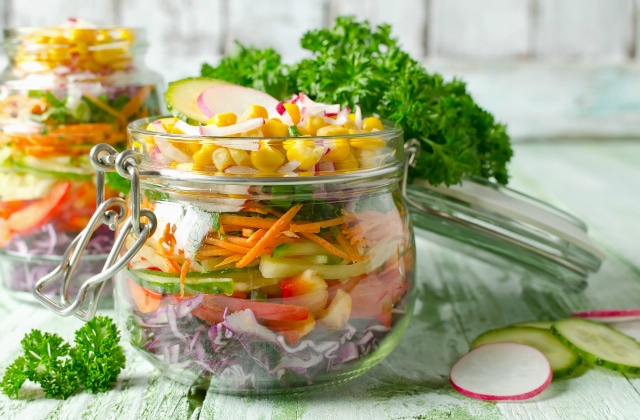
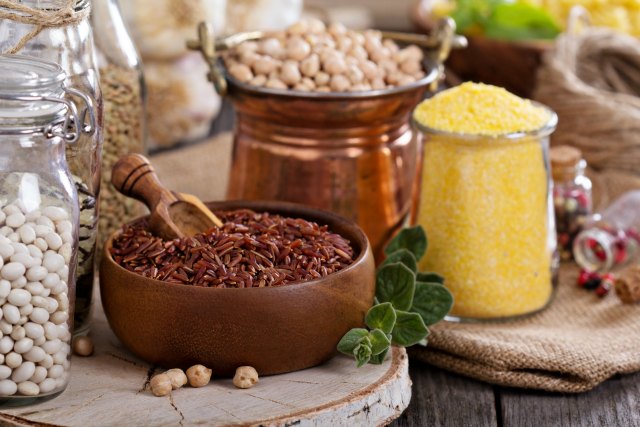
hear hear! I’ve been wanting to write about this for ages. The packaging and huge food miles of many of the so-called ‘superfoods’ is what worries me. Most are highly processed and come from overseas. I’ve been enjoying foraging for free superfood. Lately – Purslane (described by Michael Pollan in his eaters manifesto ‘In Defense of Food’ as one of the “most nutritious plants in the world”) and stinging nettle to make a highly nutritious tea.
Hi Tricia,
Foraging for ‘superfoods’ is an awesome idea.
I would love to do foraging, but I’m a bit nervous about starting. I’ve looked for classes or workshops here where I live, but haven’t found any yet :(.
I’m also interested to hear that you forage for things mentioned in Michael Pollan’s book (for example). I always pass over these because I figure they are native to America or Europe and therefore can’t be found here. It’s interesting to know that you can forage these things. Are they introduced ‘weeds’ or grow naturally here? Not that it matters, just curious.
‘Salt flavored with the sweat of Sherpas’, ‘pond scum’ – hilarious!! I have a similar way of thinking but haven’t been able to say it so beautifully. Great article.
Thanks Stacey.
Well said :)
Health food stores are a rip off. While I love my coconut oil and cacao powder, nothing beats the farmers markets or the fruit and veg store. Fresh fruit and vegetables and nuts should make up the basis of a healthy diet. Too many people think they’ll eat a ‘superfood’ and be healthier and then they go and scoff down a packet of chips or a half a bottle of red…though a nice glass of red could also be a super food, couldn’t it? haha.
Thanks Kasia.
If only we could eat a superfood to make up for junk – I’d be the first in line :).
What are your thoughts on organic vs non organic fresh produce and meat?
Hi Eva,
I have lots of thoughts on organic food, but I won’t bore you with all of them :). At the end of the day, a person can either afford organic or they can’t. If you can’t (and we can’t) then you eat the best food you can afford. From what I’ve read, Australia has excellent quality fruit, veg and meat and low levels of pesticide. I would hazard a guess that we have one of the best food systems in the world.
There’s a great book called “Food Shock: The truth about what we put on our plate and what we can do to change it”. It’s an Australian book, written about the Aus food system (so much is about America, and it’s not accurate for us). I came away from that book feeling really good about our food system, despite the title and the angle of the book.